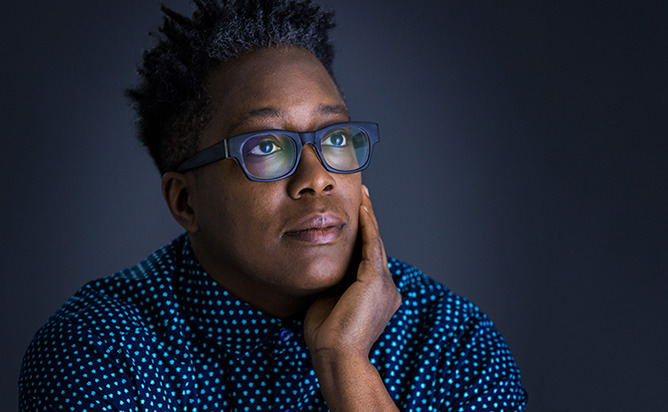Diversity drought in Oscars ends; SF State profs have mixed reactions

Mahershala Ali is nominated for his performance as Juan in the film “Moonlight.” In this scene he teaches Chiron, played by actor Alex R. Hibbert, how to stay afloat. Credit: A24
Oscar nominations set new records this year in diversity, ending public backlash and a boycott of the award show
The nominees for the 2017 Academy Awards were announced last week, and there was one thing missing compared to last year: backlash over the lack of diversity of the Oscar nominees. But San Francisco State University professors have mixed reactions to the progress made by the Academy of Motion Picture Arts and Sciences.
Between 2015 and 2016 all the nominees in the lead and supporting actor categories were white, which inspired the hashtag #OscarsSoWhite and a boycott of the awards show. This year, seven of the 20 nominees in the acting categories are actors of color. And that’s not all. The Best Picture category included films that examined black identity and history, including “Fences,” based on an August Wilson play; “Hidden Figures,” the story of black women working at NASA; and “Moonlight,” which follows a black man living in the Miami housing projects through three stages of his life. People of color were also nominated in the Best Director and Documentary Feature categories and made history by snagging nominations for cinematography and editing for the first time.
Despite this marked difference, however, SF State cinema professors have differing opinions on whether progress has been made in Hollywood.
Professor of Cinema Steven Kovacs said he thought last year’s backlash was unjustified. Kovacs, a longtime professor, has worked in the film industry for 13 years and is a member of the British Academy of Film and Television Arts.
“People of color have received many nominations in the past. Last year happened to not include any in the performance category. That was not intended,” Kovacs said. “That's just the way it turned out.” Kovacs noted that while there were no African American nominees last year, a Mexican director won the Oscar for Best Picture. “The Academy is not prejudiced against a group. It is one of the most liberal organizations in this country.”
Areas that do need improvement in terms of diversity include the production process and the number of executives, he said. Thirty to 40 years ago, Hollywood was almost exclusively white, but that has begun to change.
According to Kovacs, the Academy has responded to the backlash by launching a five-year drive to diversify its membership, which now includes SF State Assistant Professor of Cinema Cheryl Dunye. Dunye is the writer and director of the award-winning film "The Watermelon Woman," the first African American, lesbian feature film ever made. As a member of the Academy, Dunye voted this year for the first time.
“The new initiative, the induction of a whole new bunch of members, you could feel the change. You could feel the push, but it is a push,” Dunye said. “It’s not easy, especially since so many national and international events have taken priority over diversifying our movies. There’s a challenge now around entertainment and what people want to be entertained by. There’s a lot of safety and retreat. It will be very interesting to see what wins this year; is it the past or the present?”
As a first-time voter, Dunye said it’s encouraging to see changes taking place in Hollywood. “We’re really seeing the studio system and the Hollywood independent system shift. And there’s hope around that.”
SF State Professor of Cinema Celine Shimizu said there’s a general sense that progress is being made. News outlets have provided empirical evidence by tracking nominees of color from previous years, she said, but measuring progress in this way doesn’t reflect the fact that thematically the Oscars, and Hollywood remain extremely white.
"Look beyond the award numbers to all the movies that receive theatrical distribution. How many are set among the lives of non-white people of color? Negligibly few," Shimizu said. "Thematically, Hollywood can barely imagine a world in which people of color are more than tokens. Yet if Hollywood is so against the rising tide of exclusion and white nationalism that has been on the rise in our country, then shouldn’t their own vision of the world be more diverse and inclusive?"

